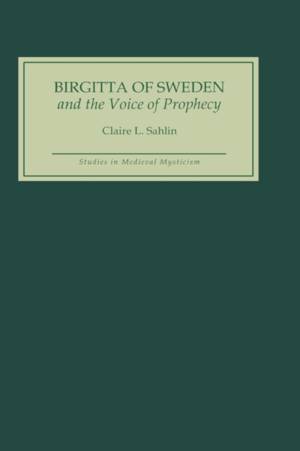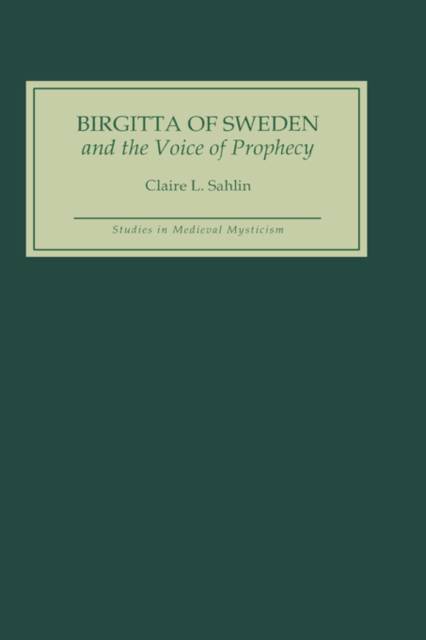
Bedankt voor het vertrouwen het afgelopen jaar! Om jou te bedanken bieden we GRATIS verzending (in België) aan op alles gedurende de hele maand januari.
- Afhalen na 1 uur in een winkel met voorraad
- In januari gratis thuislevering in België
- Ruim aanbod met 7 miljoen producten
Bedankt voor het vertrouwen het afgelopen jaar! Om jou te bedanken bieden we GRATIS verzending (in België) aan op alles gedurende de hele maand januari.
- Afhalen na 1 uur in een winkel met voorraad
- In januari gratis thuislevering in België
- Ruim aanbod met 7 miljoen producten
Zoeken
Omschrijving
This book examines the religious authority of St Birgitta of Sweden, the charismatic moral reformer and controversial female visionary of the fourteenth century, emphasising both representations of her prophetic mission and debates about her authenticity as a medium of divine revelation. It illuminates Birgitta's view of herself as a prophet of moral reform by explaining how her Revelations depict her religious mission and place in salvation history, going on to reconstruct interactions between Birgitta and her contemporaries, including the significance of her prophetic authority vis-a-vis the priestly authority of her male clerical associates. Finally, it analyses arguments about women's suitability for mediating the divine word in posthumous attacks and defences of her claims to prophesy. Through a close examination of Birgitta's lengthy 'Revelations', canonization documents, and texts by her posthumous defenders and detractors, this study demonstrates that members of her audience perceived her to be both a vibrant source of supernatural power and a dangerous transgressor of conventional boundaries. Informed by sociological studies of prophetic authority, it contributes to our knowledge of Birgitta herself as well as to our understanding of the dynamics of women's spiritual authority. Professor CLAIRE SAHLIN teaches at Texas Woman's University.
Specificaties
Betrokkenen
- Auteur(s):
- Uitgeverij:
Inhoud
- Aantal bladzijden:
- 282
- Taal:
- Engels
- Reeks:
- Reeksnummer:
- nr. 3
Eigenschappen
- Productcode (EAN):
- 9780851158211
- Verschijningsdatum:
- 14/07/2001
- Uitvoering:
- Hardcover
- Formaat:
- Genaaid
- Afmetingen:
- 162 mm x 244 mm
- Gewicht:
- 771 g

Alleen bij Standaard Boekhandel
+ 354 punten op je klantenkaart van Standaard Boekhandel
Beoordelingen
We publiceren alleen reviews die voldoen aan de voorwaarden voor reviews. Bekijk onze voorwaarden voor reviews.









